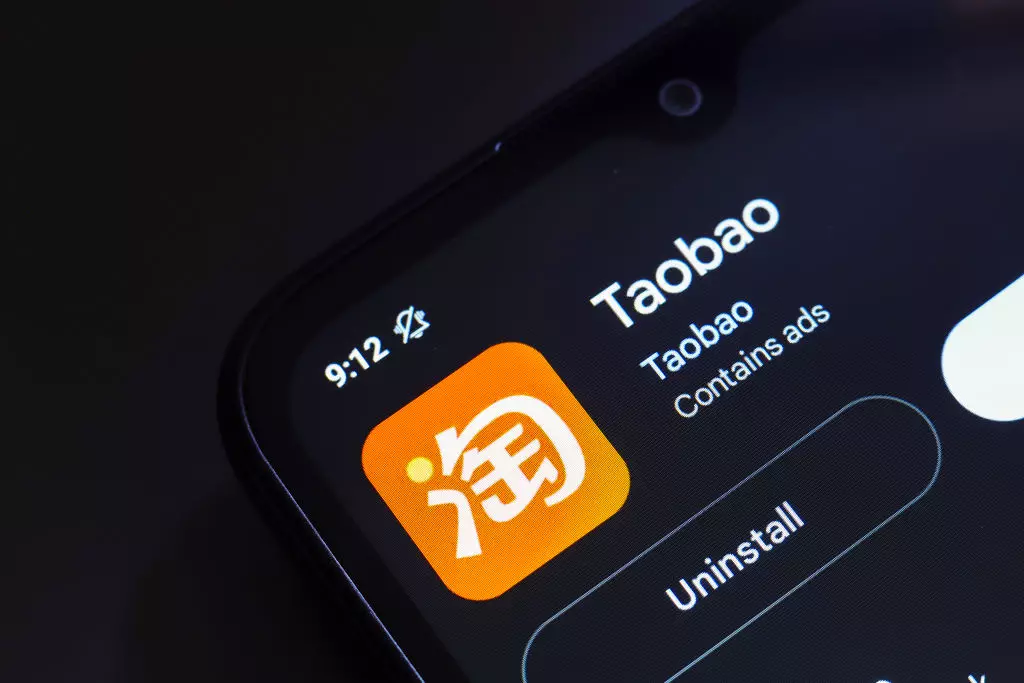In an unpredictable twist in the global economy, Chinese e-commerce platforms such as DHgate and Taobao have surged in popularity among U.S. consumers, propelled by a combination of geopolitics and viral social media trends. As of recent reports, DHgate has catapulted to the position of the second-most downloaded free app for iPhone users in the United States, illustrating a seismic shift in how American shoppers are navigating their purchasing habits. With tariffs imposed by President Trump underscoring the costs associated with importing goods from China, savvy consumers are now seeking alternative routes to obtain luxury products without paying exorbitant markups. The sudden surge in downloads—from a mere 30,000 last month for Taobao to an astounding 185,000 this April—points to a significant cultural moment where access to goods reflects deeper consumer aspirations.
Social Media as a Catalyst for Change
The engine behind this rapid ascent can largely be attributed to platforms like TikTok, where Chinese manufacturers have taken to sharing tell-all videos about the behind-the-scenes of luxury fashion. These engaging clips reveal a surprising narrative: many high-end products sold in the West are manufactured in China before being repackaged under a luxury brand in their home countries. This revelation has opened the floodgates for American consumers eager to sidestep the high prices imposed by luxury labels. TikTok has effectively democratized access to information, allowing consumers to make more informed decisions about where to spend their money. The transition from traditional shopping avenues to these innovative apps represents a growing disenchantment with established retail giants like Amazon and Walmart, highlighting a new frontier in consumer behavior that prioritizes value and authenticity over brand loyalty.
Why Now? Understanding Consumer Sentiment
The appeal of these Chinese apps is not merely economic; it is also fueled by sentiment. As prices have increased on popular platforms like Shein and Temu, consumers are looking for alternatives where they feel they can gain value and style without compromising quality. The emergence of DHgate and Taobao resonates with a larger cultural ethos—consumers today are increasingly value-conscious and are seeking out bargains, particularly when they are educated on the true origins of the products they purchase. There’s a level of empowerment in choosing to bypass the hefty retail markup, especially for shoppers who have become disillusioned with conventional shopping experiences. They are not just buyers; they are informed consumers eager to redefine their purchasing power in a complicated economic landscape.
The Risks of Embracing Direct Purchasing
Despite the advantages, the shift toward these marketplaces should be approached with caution. Quality assurance is a vital concern within the realm of e-commerce, especially when purchasing from overseas. As enticing as the deals may seem, consumers must navigate a sea of options where the quality of products can be inconsistent. This means conducting due diligence—reviewing seller ratings, scrutinizing product images shared by previous customers, and reading reviews—becomes paramount. Indeed, while the allure of scoring a designer handbag at a fraction of the price is intoxicating, the risk of receiving subpar goods remains real. Shoppers should engage in thorough research to minimize disappointment, reinforcing the age-old adage, “buyer beware.”
The Future of Online Shopping
The ascent of apps like DHgate and Taobao signals a potentially transformative era in online shopping. As consumers continue to explore these platforms, we may witness a reshaping of market dynamics, where traditional retailers must grapple with the implications of direct purchasing behavior. E-commerce seems to be at the cusp of a significant evolution—one where the lines between luxury and accessibility become increasingly blurred. The focus is shifting toward direct access to manufacturers, a development that could redefine luxury consumption and change how brands engage with their customers.
Ultimately, the lesson is clear: modern consumers are not just passive actors in the economic landscape; they are actively reshaping it. As they seek transparency and better pricing, the growth of these Chinese shopping apps reflects broader desires for economic autonomy, making the future of shopping not just a matter of convenience, but one of choice and empowerment.

